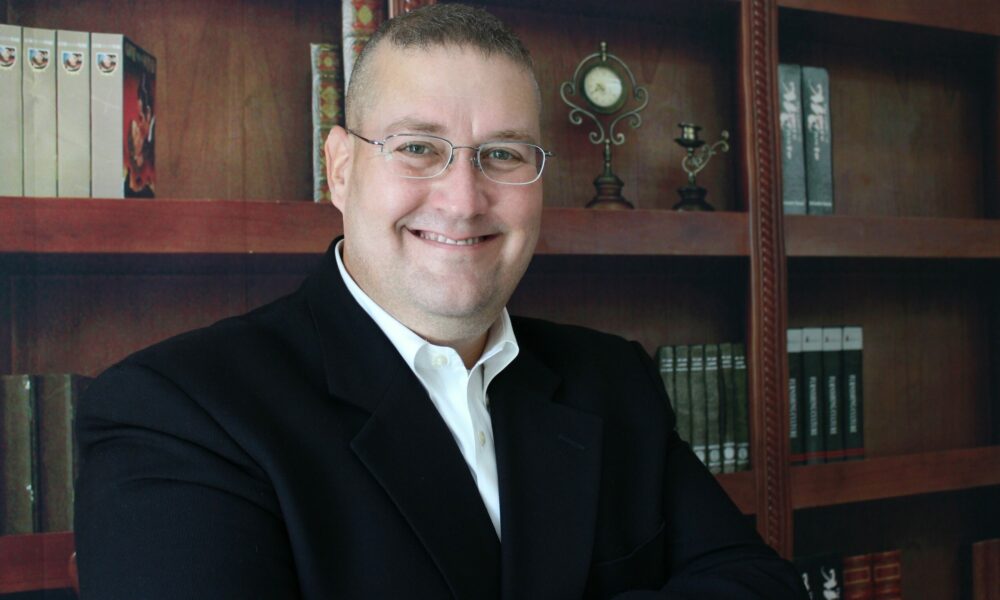

Today we’d like to introduce you to Richard Knight.
Hi Richard, so excited to have you on the platform. So, before we get into questions about your work life, maybe you can bring our readers up to speed on your story and how you got to where you are today.
My story begins in a small farming community in the Palouse Region of eastern Washington State. I had a happy childhood with loving parents, a wonderful extended family, and many friends, as well as a bevy of outstanding teachers, coaches, and other mentors that nurtured me and ultimately helped me earn an appointment to the U.S. Military Academy at West Point.
After four looooong years at the Academy, I graduated with a degree in computer science and a commission as a field artillery officer in the U.S. Army where I jumped out of airplanes, rappelled out of helicopters, and blew up stuff up with really big guns! My military career was cut short, however, after a parachuting accident left me with a permanent leg injury.
Needing a new career, I again returned to school and earned an MBA and law degree from the University of Texas where I developed an interest in patents and other intellectual property protections.
After law school, I started my legal career working in the Austin office of a large law firm before moving to a patent-specialty firm in Seattle. After that I spent almost five years building a robust corporate patent program for USAA, including the extensive patent portfolio on the “deposit-check-by-phone” technology everyone uses today. This portfolio of patents has since provided USAA with substantial revenue including high-profile federal court judgments alone totaling more than $500M to date.
After leaving USAA, I started my own specialty legal practice with a focus on building patent programs, creating high-value patent portfolios, and developing corporate patent strategies and tactical planning for a variety of different clients, large and small. Now, fourteen years later, I continue my work in these endeavors as a self-styled PATENT PROGRAM ARCHITECT ™ (to distinguish myself from more traditional patent attorneys and company program managers).
I’m sure you wouldn’t say it’s been obstacle free, but so far would you say the journey has been a fairly smooth road?
[Chuckles] Well, perhaps the most life-defining challenge for me was having to overcome the career-ending injury I sustained during parachute training in the Army. I was blown off course and landed in a nice, gentle field where someone had removed all the fenceposts but didn’t fill in all of the holes. When my foot found one of those holes and went in heel first (ouch!)—well, that injury would completely change the course of my life.
The first doctors that examined me were of the opinion that I would probably never walk again unaided. In fact, I still remember one doctor saying, “Well, Lieutenant Knight, there are four things you can do to really [foul] up an ankle, and you did all four.” Thankfully the specialist surgeons that soon followed were more optimistic in their prognosis and would succeed in substantially restoring my ankle’s functionality, but not all of it, so my military career was effectively over.
As you might imagine, for someone who had his eyes set on a career as an Army officer, this setback cut deeply and required me to reevaluate the course of my life and, indeed, my overarching sense of purpose. But thankfully I had the support of my wife (Helen), family, and friends to help me keep things in perspective and see the new opportunities before me. So, I made a big pivot and pursued a much different career than the one I expected—a career at the nexus of law, business, and high-tech.
Appreciate you sharing that. What else should we know about what you do?
As I mentioned earlier, I view myself as a PATENT PROGRAM ARCHITECT ™ specializing and succeeding in building large, high-value patent programs from the ground up. From working with high-tech start-ups to Fortune 500 companies, I design, lead, and manage end-to-end programs for building high-value patent portfolios for my clients, including both company in-house processes as well as engagement and deployment of outside legal resources (e.g., traditional patent attorneys). In addition, I help my clients with other in-house challenges—from strategy development to process improvement, from costs control to quality management, from direct patent production to management of multiple outside patent resources—all with a focus on long-term return-on-investment (ROI).
Stated differently, I work alongside my clients to identify the best patent strategy for their company and help them implement the most effective and efficient processes for managing their efforts to protect and derive maximum value from their innovations. Bottom line: few people are truly qualified for this work, and fewer still can rightly claim the success I have had.
What matters most to you? Why?
Gosh, there are so many important things…
Duty, honor, country. Faith, family, and friends. I value conscience and character over celebrity and charisma, honesty over success, and reason, rationality, and fairness in all things, yet still tempered with compassion and understanding. All these things I greatly value. However, above all things, I value loyalty. Indeed, in my own personal experience, I see loyalty being the underlying force behind all of the other things I have listed. True loyalty is a rare find and more valuable than gold.
Why? Starting from my earliest days, the unwavering loyalty others have shown me has set the foundation for my life and career. I will be forever grateful for my parents, wife, children, close friends, mentors, and the institutions I value most—church, family, West Point, the Army, the great State of Texas, of course, and our really great country, USA! But perhaps I value loyalty most highly because it is the ultimate measure by which I measure myself as a man, as a father, as a husband, and as a friend. I have many shortcomings, I readily admit, but loyalty is not one of them.
Pricing:
- Short answer: patents are very expensive. To just draft and file a good, solid patent application on a single invention will cost about $12K, and then prosecuting the application all the way to an issued patent will cost even more than that. I generally advise my clients that they should budget to spend $25K-$30K for each application over the course of 3-5 years to get an issued patent.
Contact Info:
- Linkedin: https://www.linkedin.com/in/knighx/
- Other: https://www.texasbar.com/AM/Template.cfm?Section=Find_A_Lawyer&template=/Customsource/MemberDirectory/MemberDirectoryDetail.cfm&ContactID=201962




















